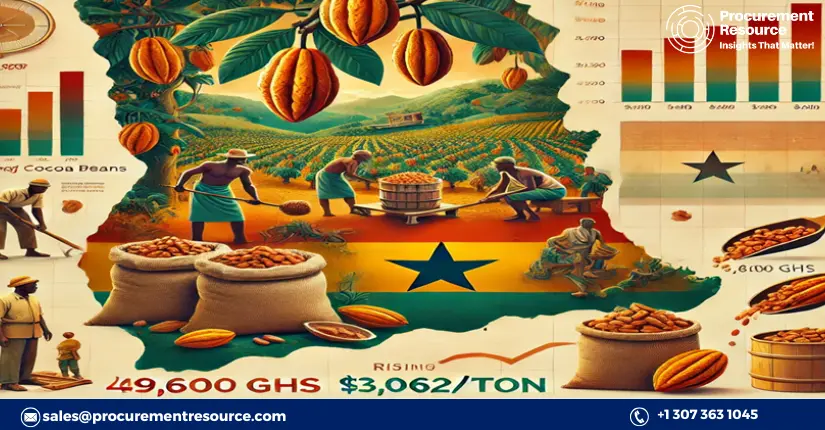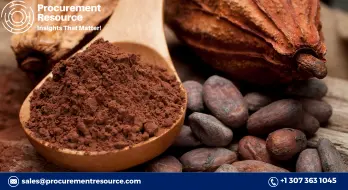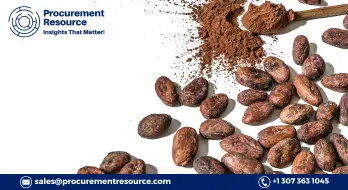Ghana raises cocoa farmgate prices to set off smuggling and incentivize farmers amid ongoing supply crunch

- The global cocoa market is shifting as Ghana, the second-largest producer, expects a rebound in the 2024/25 season due to favorable weather and improved farming practices. However, amid challenges like illegal mining, smuggling, and crop diseases persist contributing to a global supply deficit and record-high prices, Ghana raised farmgate prices to 49,600 cedi ($3,062) per ton, aiming to boost farmer incomes.
- This aims to deter smuggling by making local prices competitive. A new funding system requiring upfront payments from buyers also seeks to curb illegal trade but has faced criticism. Amid these efforts, risks such as black pod disease and hoarding continue to pressure global supply and prices.
The global cocoa market is undergoing significant changes as Ghana, the second-largest producer of cocoa, prepares for a production rebound in the 2024/25 season. Improved weather conditions, including favorable rainfall and sunshine, along with timely use of fertilizers and pesticides, have contributed to healthier cocoa pods.
However, persistent challenges such as illegal mining, smuggling, and crop diseases continue to pose risks to production. Ghana’s cocoa output reached a more than two-decade low in the 2023/24 season, with production falling to less than 55% of its average yield.
Smuggling played a significant role in the decline, diverting over a third of the country’s harvest. Similar challenges in neighboring Ivory Coast, the world’s top producer, have contributed to a four-year global supply deficit, pushing cocoa prices to unprecedented highs.
For the upcoming season, Ghana expects production to recover, targeting 650,000 tons. To address income concerns and combat smuggling, the government has raised the farmgate price paid to farmers twice in the 2024/25 season. President Nana Akufo-Addo announced that farmers will now receive 49,600 Ghanaian cedi ($3,062) per metric ton, up from 48,000 cedi. The adjustment, effective immediately, aims to boost farmer incomes and reduce the incentives for illegal trade. Raising the farmgate prices for cocoa (the fixed price farmers are paid for their cocoa) directly increases farmers’ income from selling beans. By offering farmers a better financial return for their harvest, the government aims to make selling cocoa through official, regulated channels more attractive than turning to smuggling.
Smuggling often occurs because neighboring countries may offer higher prices for cocoa, enticing farmers to bypass local systems. With the price hike, Ghana's rates become more competitive, reducing the appeal of illegal trade. This approach seeks to retain more cocoa within the domestic market, ensuring that local farmers benefit fairly while stabilizing the national supply chain.
Read More About Cocoa Production Cost Reports - Request Free Sample Copy in PDF
Additionally, a new funding system requires global buyers to make upfront payments for cocoa shipments. While this model is designed to deter smuggling, it has drawn mixed reactions, with concerns that limited funds might slow purchases and inadvertently encourage illegal activities. Reports also suggest that some farmers hoarded cocoa beans in anticipation of price increases, further tightening global supplies.
With risks like black pod disease still looming and market uncertainties persisting, Ghana’s efforts to stabilize its cocoa sector will play a crucial role in shaping global cocoa dynamics. These developments, along with ongoing supply constraints, are expected to keep prices elevated in the near term.



.webp)
